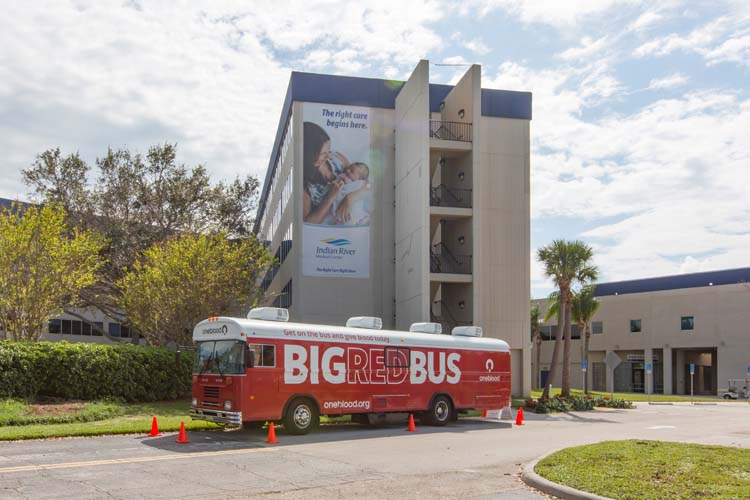
It won’t fit on a bumper sticker, but “right anterior thoracotomies” happen.
So, too, do “peripheral cannulations in the groin artery” and “congestive heart failures.”
And sometimes all those things happen at the most inopportune times. Like, for instance, just before, during and immediately after a hurricane.
What will fit on a bumper sticker is “I ❤ IRMC Staffers,” and Welsh Heart Center cardio-thoracic surgeon Dr. Mark Malias and the Indian River Medical Center’s chief medical officer, Dr. Kathy Grichnik, would probably snap up a bumper sticker like that and proudly display it on their office walls.
Why? It’s simple. When blood and blood platelet supplies at the hospital ran dangerously low during and immediately after Hurricane Irma – only two 500-milliliter bags of platelets remained for the 332-bed facility – it was IRMC staff members who stepped up and volunteered to donate blood for their patients.
The volunteerism was critical because, at the time of this acute shortage, at least a dozen surgeries, many requiring supplies of blood and platelets on hand, were scheduled at the hospital.
Malias, a rapidly rising star in cardiac surgery circles, had a patient with congestive heart failure who needed an aortic valve procedure (a right anterior thoracotomy with a peripheral cannulation in his groin artery), and that patient was already scheduled for the OR.
The patient had been treated a month earlier by Welsh Heart Center’s electrophysiologist, Dr. Brett Faulknier, for atrial fibrillation – a quivering or irregular heartbeat that can lead to blood clots, stroke, heart failure and other heart-related complications – and was originally slated to have his heart valve procedure on Friday, Sept. 8.
But with Hurricane Irma approaching the Florida coast at the time, a change of plans was required.
As Malias recounts, “I suggested we try Tuesday, Sept. 12, because at the time we didn’t know what impact the storm would have here. Then, that Tuesday morning in pre-op holding, I was talking to him while the lights were flashing on and off and he understood why I’d put his procedure off. The patient’s heart valve surgery was postponed again, for another three days, but the blood and blood platelet shortage persisted.”
Why are blood platelets so important? They help initiate clotting and prevent excessive blood loss after surgery. They also take time to prepare.
As Grichnik explains, “giving a platelet transfusion is not as easy as just going and donating blood, which might take an hour. Platelet donation might take up to four hours because they have to [process the blood] in a separate way, called apheresis.”
Apheresis involves more than just collecting blood from a donor. With an instrument that is essentially a centrifuge, says CentralBloodBank.org, the components of whole blood need to be separated and the platelets secured separately.
Grichnik says IRMC’s Patric Gibson, director of laboratory services, was the one who first sounded the alarm about the platelet problem.
After hearing from Gibson, Grichnik had sent out an email blast to all IRMC employees on Thursday, Sept. 14. The response caught her by surprise.
“We came in the next day and Patric said that it was like a miracle,” Grichnik says. “All these people [within the hospital] decided to donate” and Malias’ patient was finally able to have his heart valve surgery on the 15th.
If it’s possible, Malias seems even more impressed by the response than either Grichnik or Gibson. “The staff at IRMC took on this additional responsibility,” says this talented surgeon, “and they rolled up their sleeves and donated their time and blood. The staff at IRMC is accustomed to putting the community needs above their own. They responded here and made the difference.”
There is still a persistent blood and blood platelet shortage nationwide and it is especially acute here in south Florida, so Malias, Grichnik and Gibson all urge county residents to step up like the staff at IRMC did and donate blood.



